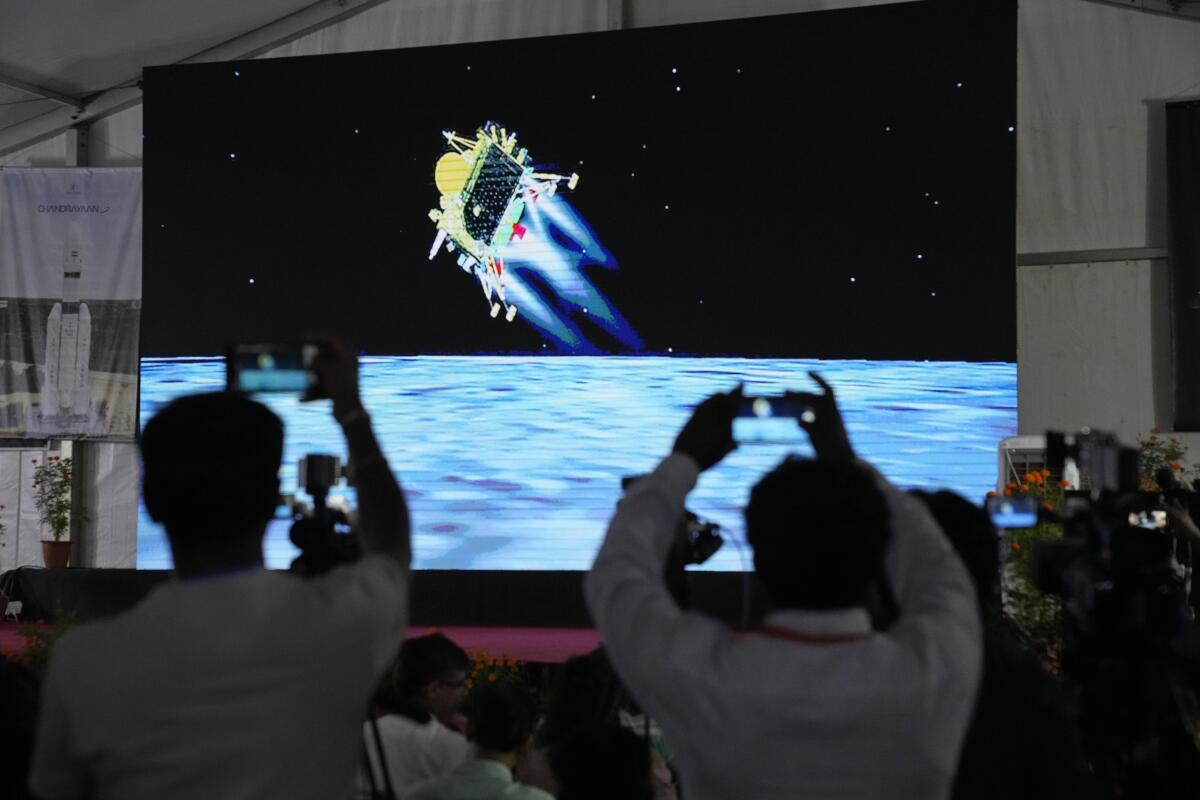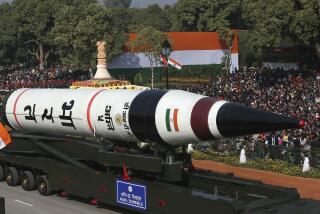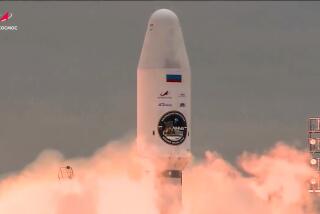Editorial: ‘India is now on the moon’: A shoestring budget and can-do attitude equaled a cosmic success

India achieved a legendary feat on Wednesday. With the successful landing of the Chandrayaan-3 spacecraft it became the fourth country to have landed on the moon — and the first to have landed near the lunar South Pole.
What’s more, the operation’s $74-million cost was significantly less than the budgets of blockbuster space movies such as “Gravity” and “Interstellar.”
The moment was particularly impressive, given the crash days earlier of Russia’s Luna-25, which was aiming for the same lunar region.
India lands a spacecraft near the moon’s south pole, which scientists believe could hold vital reserves of frozen water and precious elements.
“India is now on the moon. ... We are witnessing history,” Indian Prime Minister Narendra Modi said while watching the landing from South Africa.
India’s stellar achievement is exemplary for its ambition in the face of the country’s significant economic hurdles. Its space program’s $2-billion budget is a mere fraction of that of every other country that has landed on the moon. Contrast that to the 2022 space budgets of the U.S. at $62 billion and China at $12 billion. In the early days of the state-run Indian Space Research Organization, the scientists would transport rocket parts on their bicycles.
This is an endearing example of the “jugaad” mindset of Indian engineers, which describes problem-solving with frugality and creativity. Using this idea of frugal engineering helped the world’s largest democracy achieve lofty ambitions and make a name on a global stage.
It has been a half-century since we first went to the moon. The feeling today is a combination of pride and anxiety, patriotism and ambivalence.
Although top Indian engineering colleges have a fraction of the endowment of top American engineering colleges such as Stanford and Massachusetts Institute of Technology, their graduates go on to dominate top jobs in Silicon Valley — including the CEOs of multibillion-dollar corporations such as Microsoft and Alphabet.
Here’s to the country that transformed a shoestring budget into cosmic success, reminding us all that the universe favors the bold, but especially those who are both innovative and wise.
More to Read
A cure for the common opinion
Get thought-provoking perspectives with our weekly newsletter.
You may occasionally receive promotional content from the Los Angeles Times.











